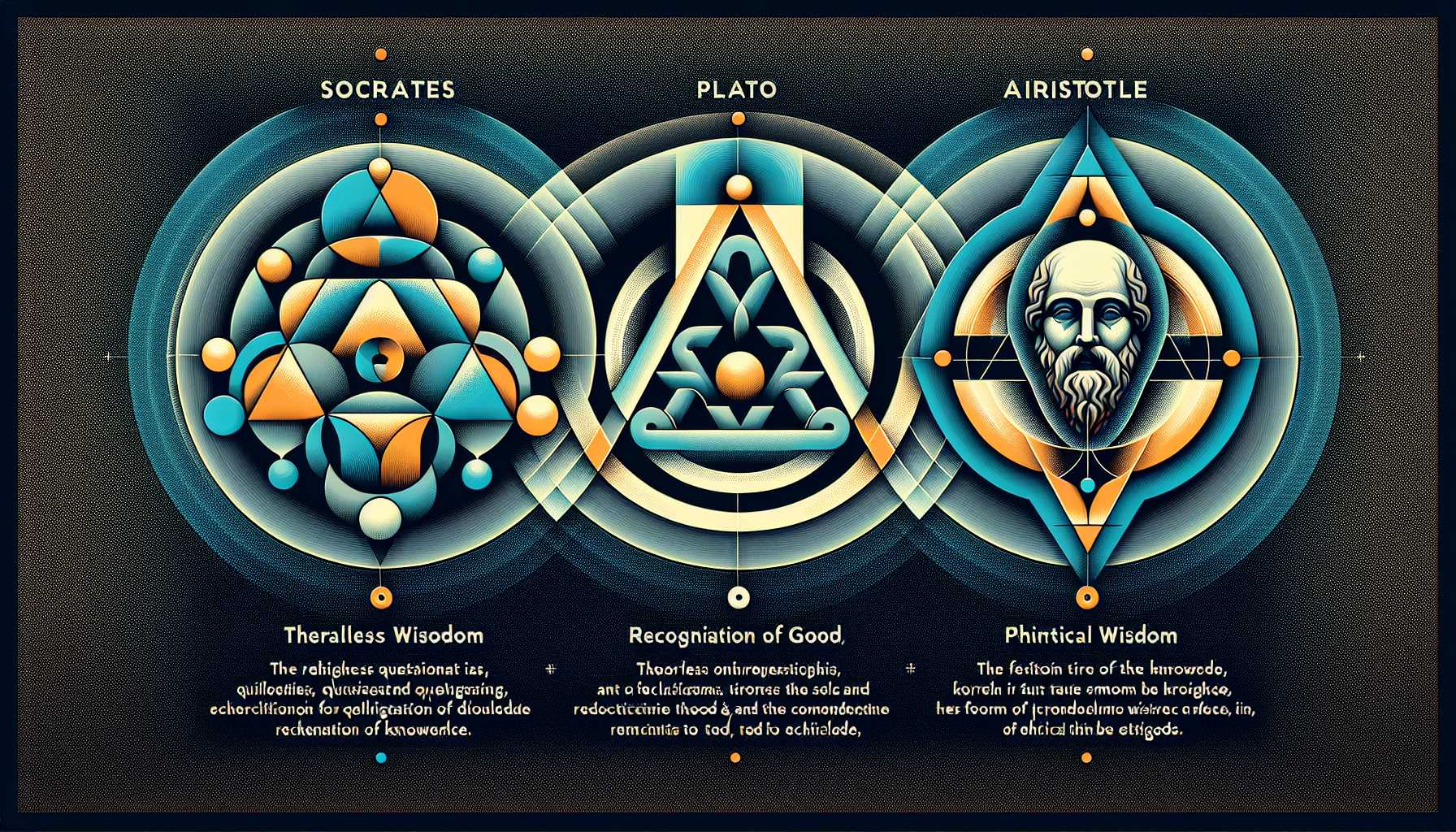
Wisdom Through the Ages Socrates Plato and Aristotles Insights
The article from the Wisdom Center at the University of Chicago discusses the perspectives of three foundational philosophers — Socrates, Plato, and Aristotle — on the concept of wisdom.
Articolul de la Centrul de Înțelepciune de la Universitatea din Chicago discută perspectivele a trei filozofi fundamentali — Socrate, Platon și Aristotel — asupra conceptului de înțelepciune.
Socrates is characterized by his approach of relentless questioning and dialogue, emphasizing that true wisdom involves recognizing one’s own ignorance.
Socrate este caracterizat prin abordarea sa de întrebări neobosite și dialog, subliniind că adevărata înțelepciune implică recunoașterea propriei ignoranțe.
He viewed wisdom as a moral quality, deeply linked to how one lives and interacts with others, famously stating that 'the unexamined life is not worth living.'
El considera înțelepciunea ca o calitate morală, profund legată de modul în care cineva trăiește și interacționează cu alții, afirmând celebru că 'viața neexaminată nu merită să fie trăită.'
Plato, a student of Socrates, elaborates on the notion of wisdom in his works, especially in 'The Republic,' where he describes the philosopher-king as the ideal ruler.
Platon, un student al lui Socrate, dezvoltă noțiunea de înțelepciune în lucrările sale, în special în 'Republica', unde descrie filozoful-rege ca fiind conducătorul ideal.
For Plato, wisdom is an understanding of the Forms, particularly the Form of the Good, and is essential for achieving justice and knowledge.
Pentru Platon, înțelepciunea este o înțelegere a Formelor, în special Forma Binelui, și este esențială pentru atingerea justiției și a cunoașterii.
He believed that wisdom has a rational foundation and is connected to a higher truth that transcends the material world.
El credea că înțelepciunea are o fundație rațională și este legată de o adevăr mai înalt care transcende lumea materială.
Aristotle, Plato's student, provides a more practical view of wisdom, classifying it into two types: theoretical wisdom (sophia) and practical wisdom (phronesis).
Aristotel, studentul lui Platon, oferă o viziune mai practică asupra înțelepciunii, clasificând-o în două tipuri: înțelepciune teoretică (sophia) și înțelepciune practică (phronesis).
He emphasizes that wisdom is not just about knowledge, but also about the ability to apply knowledge in practical situations.
El subliniază că înțelepciunea nu este doar despre cunoaștere, ci și despre capacitatea de a aplica cunoașterea în situații practice.
Aristotle sees wisdom as a virtue, closely tied to ethical behavior, suggesting that a wise person is one who makes sound judgments and decisions that lead to a good life.
Aristotel vede înțelepciunea ca pe o virtute, strâns legată de comportamentul etic, sugerând că o persoană înțeleaptă este una care ia judecăți și decizii corecte care duc la o viață bună.
Consequently, each philosopher offers unique insights into the nature of wisdom, reflecting their larger philosophical schools of thought.
Prin urmare, fiecare filozof oferă perspective unice asupra naturii înțelepciunii, reflectând școlile lor filosofice mai mari.
Based on this article
